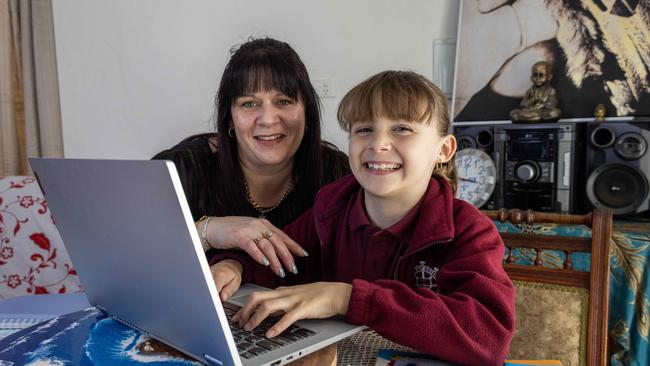Free broadband gives students equal access
Fast and reliable broadband services are bridging the educational divide between regional and metropolitan students.

Bush Summit
Don't miss out on the headlines from Bush Summit. Followed categories will be added to My News.
Patchy internet is no longer an excuse for regional and remote school students to not get the most out of education.
Fast and reliable connections are helping bridge the educational divide between city and country, with students able to learn at the same pace as their metropolitan counterparts.
Encounter Lutheran College principal Kelvin Grivell said internet access had become integral to education, not just for students to access online resources during classes but for teachers to plan lessons and even register school attendance.
He said pre-broadband, it would not have been possible to connect each of the school’s 800 students’ and staff members’ devices while distance also seemed to exacerbate the problem.
“It was luck of the draw whether it would work on any given day and the really frustrating thing was it was so unreliable, teachers would often just not bother,” he said.
“While the teacher tries to restart their device or check the connection or call the IT department, then that’s a quarter of the lesson lost.
“So it did compromise the way that students access the curriculum but thankfully, that’s no longer the case.”
However, after school hours, some students have had trouble accessing high-speed broadband at home to do their homework.
To overcome this, the NBN is implementing the School Student Broadband Initiative, which provides free broadband to eligible households until the end of 2025.
Murray Bridge South Primary School Year 3 student Kiara Cavuoto, 8, is among the students in 3000 SA families to benefit.
Her mum Natasha Famiglietti used to turn on her mobile phone’s hotspot capability to connect their laptop or tablet to the internet.
“It’s quite an expensive way to do it and it was going through data too quickly,” Ms Famiglietti said.
“We were looking at a minimum $40-$80 a month … and that’s quite a substantial amount of money.”
Meanwhile, the NBN is also playing an increased role during major national emergencies, with hi-tech mobile satellites becoming vital to restoring communications in disaster zones.
The NBN has developed a versatile fleet of vehicles and equipment to rapidly deploy to communities after bushfires and naturaldisasters to connect emergency Wi-Fi.
NBN regional manager Jennifer Ganske said satellite trucks and mobile satellites could be sent to quickly restore phone and internet services. “We can go in and support communities to offer emergency Wi-Fi at the request of emergency services,” she said. “It creates relief, it makes people have a little bit of safety in something that can be really traumatic.”
During the January floods in central and northern Victoria, the NBN restored almost 8000 disrupted services at 134 sites over nine days. Teams also provided emergency Wi-Fi during the Grampians bushfires and major storms in Mirboo.


